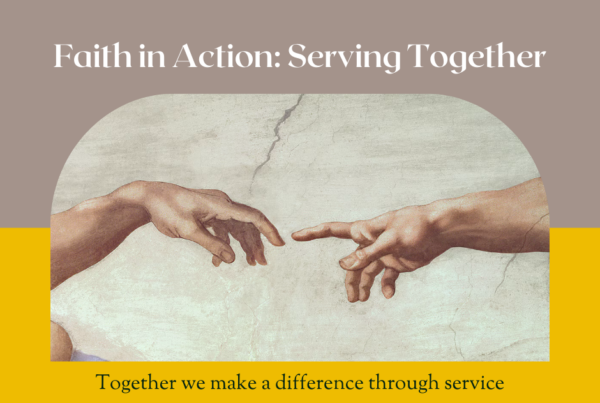Out of breath, red in the face, sweaty, shaking from drinking two-too-many coffees with no breakfast and embarrassed from the anticipation of walking into the classroom late with a low quality paper that was finished in the unholy hours of the night. That’s the life of the “put together,” “falling apart” and average college student; it’s the stress of picking two options out of having a social life, not failing classes, and getting maybe six hours of sleep.
1. ELEVATE GOD IN YOUR LIFE
In college you’re thrust into the deep waters of challenging academics that require more time, oftentimes a job to pay for said education and to pay for groceries, a social life that can sometimes feel like an ever expanding circle, physical health and mental well-being, as well as spiritual health. But how do we know that we’re living a life that’s “set apart” from the world (1 Peter 2:9-10; 2 Corinthians 6:14-18) rather than one that’s allowing the culture to speak louder than the world?
Dr. Paul Helseth from the Biblical and Theological Studies Department asked, “well, what’s true, good, and beautiful? Is that thing the Bible or is it something else?” He said we should seek what’s true, good, and beautiful and test it with Scripture to see if that aligns with what God says is true, good, and beautiful. We can’t be the first and final appeal for those things because our views and perceptions constantly change, just as the culture is. The Bible, though living and active (Hebrews 4:12), remains the same as seasons change and as generations pass (1 Peter 1:25; Psalm 119:89-90; Isaiah 40:8). Therefore, we need to “take every thought captive to obey Christ” (2 Corinthians 10:5). How do we do that if we’re not appealing to the Bible but ourselves instead?

2. FIND REST AND FELLOWSHIP
In addition to learning and evaluating if we’re putting culture in subjection to the Gospel or Gospel in subjection to the culture, we ought to realize that we need rest. Ultimately, this rest can only be found in God and part of how He provides that rest is through fellowship with brothers and sisters in Christ. So, how can we both find rest in God and how can we rest while in fellowship?
3. MAKE A PRIORITY LIST
Dr. Ed Glenny from the Biblical and Theological Studies Department suggests that college students set priorities and start with what’s more important. He explained that we tend to overexert ourselves trying to make multiple things higher on our priority list, but we just aren’t capable of maintaining so many things so well.
He gave the following outline for priorities and suggested that after the top one it can all be adjusted.
- Your personal walk with the Lord. Such things include bible reading, regular prayer, Christian fellowship within the church– which is to be connected and regularly attend.
- Physical health and mental well-being. Things such as exercise and dieting in order to care for the vessel that God has given us (our bodies) as well as times of rest with silence and solitude to quiet the busyness of the world to better focus our hearts and minds on the Lord.
- Academics. Afterall, we’re here by God’s grace and our academics is a talent (Matthew 25:14-30) that we can steward well and thus, multiply.
- Social life. College friends can be life time friends that bring joy and good counsel that’s from the Lord. It’s important to not neglect friendships, but we need to make sure our friendships aren’t building a barrier between us and the Lord. A good question to ask is “am I skipping church if I hang out with these friends?” and “are these friends showing me the love of Christ in how they care for me, call me out on sin, and push me to grow in my relationship with Christ?”

department at the University of Northwestern – St. Paul.
Meanwhile, Dr. Helseth stated that in order to have the fellowship God designed for us we need to “be active in the church, participate in the life of the church… become a member of a church… where you’re actually participating and contributing and under the authority of elders and a pastor.” The idea for Christian fellowship mainly occurring within the church comes partially from the idea that nearly every single epistle from the New Testament is written to a church of believers. The rest of the why comes from the priority within the message of the letters as well as the exhortation given to believers to be in community with one another.
Within the context of a church, you’re being fed and in relationship with fellow believers that gather together on a regular basis. There’s active involvement by becoming a member, which is an indication that your primary identification is as a member of the body of Christ. Dr. Helseth finished with a convicting exhortation with the reminder that we’re part of something larger than ourselves. “It is wrong to think that Christianity revolves exclusively around my relationship with Jesus.”
5. FIGURE OUT YOUR PURPOSE IN LIFE
Finally, not only as college students, but as Christians we ponder, what’s God’s will for my life? What’s His purpose in this season? More specific questions may lead to us asking if this is the right major for us, what’re we going to do for a career, what does housing look like next year, and how on earth am I supposed to feed myself with only $300 dining funds?
Take peace, there’s wisdom in many counselors and the older men and women of the church and of our university can give much of that. Dr. Glenny rephrased all of the anxiety-inducing questions into two simple ones, “how can I better serve others?” and “How can I best serve God?” These questions should have a higher value in our lives and should pervade everything we do. Afterall, we’re not only to eat and drink to the glory of God, but to do everything to His glory (1 Corinthians 10:31).
“You can serve God almost anywhere if you are sensitive to people.”
Dr. Ed Glenny
However, those were not the only questions given for evaluating what we’re doing with ourselves during this time. Dr. Helseth and Dr. Glenny brought up many questions that may spark clarity in our minds. What do you like in your studies? What’re you good at? What subject awakens your passion? What do other people think your strengths are (roommates, romantic partner, parents, pastor(s))? What’re your interests? “God would probably not call someone to serve Him by doing something they hate,” Dr. Glenny joked. But in all reality, it’s true. But it’s not just about what you enjoy, but genuinely what you’re good at. “I’d love to be a professional golfer, but I just suck at golf,” Dr Helseth exclaimed. He then went on to give great reassurance and said, “the Lord guides us through various means to make these kinds of decisions.”
6. BREATHE AND KEEP MOVING
Now we know how to test the culture and our own thoughts and perceptions to see if they align with God’s word, we know how to better seek God’s rest and truly fruitful fellowship with other believers, and we know how to better discern God’s will and purpose for our lives. Life’s not easy as a college student, but there’s joy in the morning before finals, there’s peace in the waiting before test results, there’s mercy from professors for absences or tardies, and there’s holiness in being set apart from the world on our Christian campus. These are all beautiful graces from our Lord and we ought to take heed of His Word. And in the words of Christ Jesus, “Go, therefore, and make disciples of all nations, baptizing them… teaching them to observe all that I have commanded you. And behold, I am with you always to the end of the age” (Matthew 28:19-20), go in peace and glorify the Lord with me, Northwestern.
BIBLICAL AND THEOLOGICAL STUDIES DEPARTMENT
The University of Northwestern– Saint Paul’s Biblical and Theological Studies department is one of the best in the nation. The distinguished professors that gave wisdom in this article aren’t the only ones, there are many more that have just as much wisdom and just as large of a heart for college students. UNWSP aims to prepare and equip young Christians to pursue their passion for Christ and go on to educate and equip future generations.


